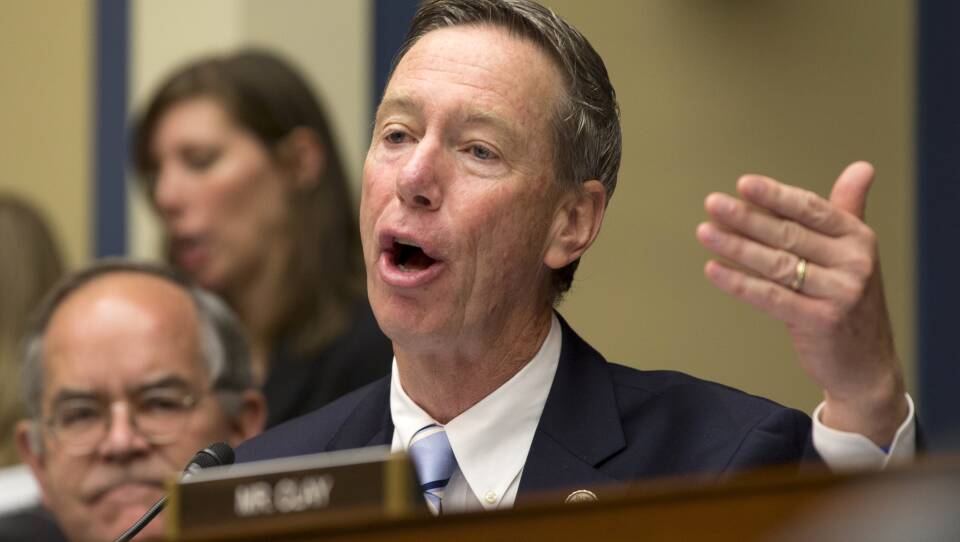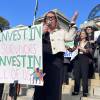A day after long-planned MBTA service cuts began to go into effect, U.S. Rep. Stephen Lynch reprimanded the agency for making the reductions even as it is slated to receive a roughly $1 billion infusion of federal relief funding.
“It is incongruous with our intent, speaking for the delegation, that an agency would take federal support from the taxpayer and then cut services to those same taxpayers,” Lynch said, noting that other members of Massachusetts' congressional delegation are "furious" over the cuts.
“We are in total opposition to the reduction in services, to the laying off of employees, of furloughing employees," Lynch, a Democrat, said. "The whole idea here is to move the country and the state and our cities and towns back to a more normal pattern of life.”
The comments came during a joint press conference at Faneuil Hall alongside Boston Mayor Marty Walsh.
The MBTA has begun a 20% service reduction on the Orange and Red lines, along with suspending several bus routes. The changes, the agency said, are intended to save about $21 million and help close its annual budget shortfall, which is greater than usual due to the pandemic, which has decreased ridership.
According to Commonwealth Magazine, Keolis, the company that operates the MBTA’s commuter rail system, also plans to permanently furlough about 9% of its workforce.
Lynch said he’s “been back and forth” with the agency’s general manager, Steven Poftak, about plans to furlough MBTA workers.
“We’re going to have some hard discussions with the MBTA and with the governor," Lynch said, referring to Gov. Charlie Baker, a Republican. "We hope that more thoughtful ideas would emerge from those discussions."
Lynch also said that the federal relief package contains $130 billion for schools, including a portion for higher education plus $3 billion for parochial and private schools.
Walsh said that more Boston Public Schools students are returning to in-person learning this week. On Monday, BPS welcomed students from grades 4 to 8 back into classrooms as its optional hybrid return schedule continued.
The state is calling for full-time, in-person learning for elementary and middle school students by April.
Walsh said BPS is working towards this goal but will continue to “respect the families’ choice” and offer remote learning as an option. BPS is currently surveying its constituents for their preferences.
Walsh added that if public health data continues to show good signs, the last category of BPS students — grades 9 through 12 — will be able to opt in to hybrid learning beginning March 29.
Outdoor dining is also set to begin in Boston a week earlier than originally scheduled, though Walsh said Monday that the North End neighborhood of Boston will have a weeklong delay due to its “high density.”
The mayor, who is now expected to be confirmed to lead the U.S. Labor Department next week, also noted that the city’s COVID-19 case load remains “below threshold of concern." But he said that's not cause for disregarding public health precautions.
As of March 10, about 24% of Boston residents 16 years or older have gotten at least one dose of a coronavirus vaccine, and about 13% have been fully vaccinated.





